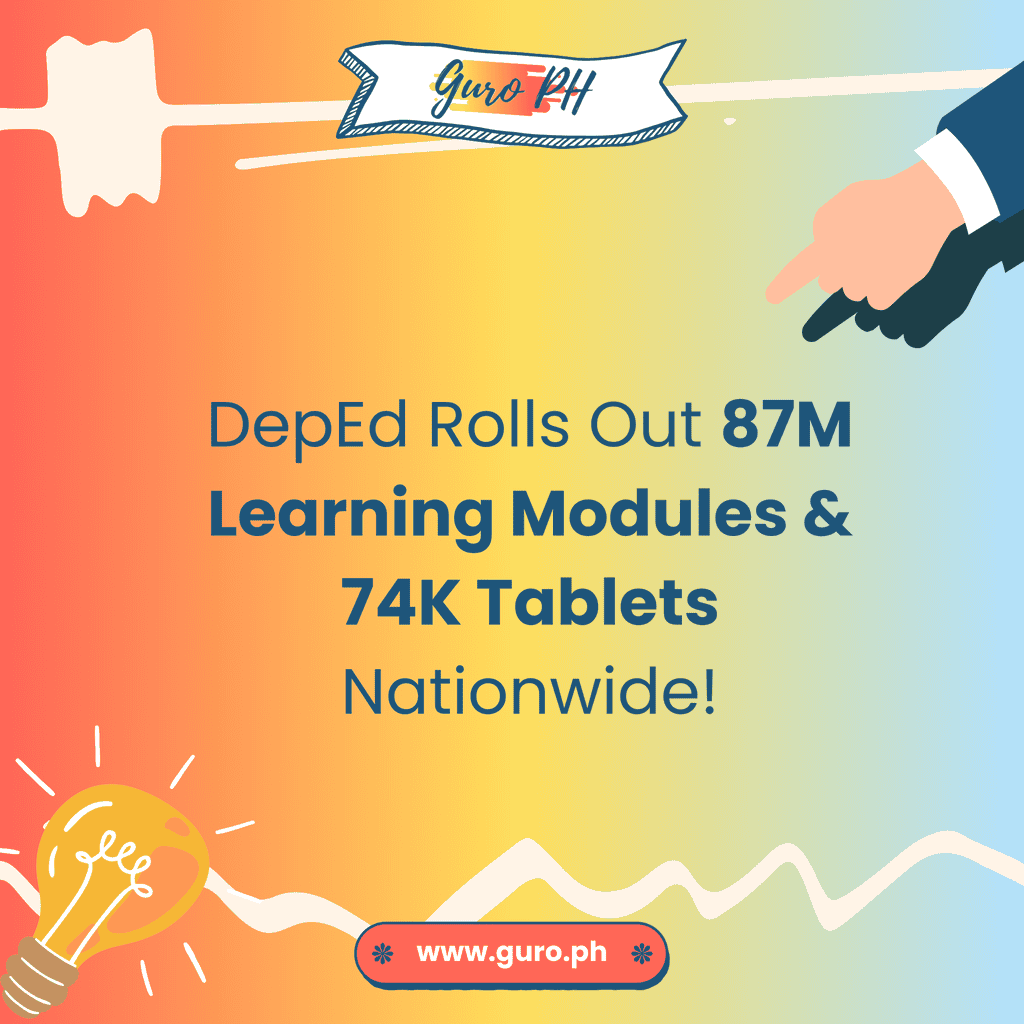Since the COVID-19 outbreak in the Philippines disrupted the education system, there has been a high level of focus given to the safety of students and their much-needed access to digital resources for the upcoming shift to ‘blended’ learning.
But while it is only proper to prioritize the students, it should also be raised that government and policymakers should provide the same level of importance to teachers.
For after all, who would teach the students if the country’s educators could not do so?
The Department of Education (DepEd) in recent weeks has flaunted its preparations for ‘blended learning,’—a combination of printed modules, online instruction, and radio and television guides.
Education Secretary Leonor Briones earlier this week boasted that ‘blended’ learning is nothing new to the Philippines—saying it has been practiced by the country for “decades.”
“We have been doing distance learning, blended learning for decades and decades [now]. We have a university— at the University of the Philippines, which does and specializes in distance education for the longest time and those who take up education and study education are already exposed to this. We are not inventing anything new,” Briones said in Malacañang last week.
While DepEd takes pride in the program, it stoked worries among teachers, many of whom are earning meager salaries and paying off loans.
It is true that there are distance education mechanisms available for students in the Philippines. But it should be noted that it would be the first time that the Philippine basic education system will take a full 360-degree turn and not everyone is equipped and prepared for this.
Teachers will be forced to shell out additional funds from their own pockets as internet access and speed will be a lifeline in the upcoming school year—an Achilles’ heel of the nation.
Maintaining internet connectivity alone will deal a heavy blow to teachers with telecommunication firms charging at least P1,000 per month for basic access to internet. Should teachers need faster internet connections, they would have to pay higher.
To add to the burden, a May 2020 study on internet connectivity in the Philippines showed that it had a “meager average” internet speed of 2.8 Mbps, far behind South Korea, which ranked first out of 160 countries, with an average speed of 23.6 Mbps. The Philippines ranked 104th.
It should be noted that DepEd only provides teachers with a P3,500 cash allowance for “the purchase of teaching supplies and materials, tangible or intangible, for the implementation or conduct of various modes of learning delivery.”
This is clearly not enough to help teachers adjust to the blended learning program.
Many teachers will also need to buy or upgrade their gadgets to meet the demands of blended learning. And DepEd affirmed this, saying it needs to purchase more laptops, and tablets for public school teachers.
It said it was targeting to provide only 190,574 laptops for teachers when there are over 800,000 public school educators in the country.
Does DepEd expect excluded teachers to pay for new gadgets using their hard-earned salaries when entry-level public school teachers only earn a meager P22,316 per month?
Many have said that teaching is a vocation more than a profession. I agree, but being a teacher should not render one a martyr too.
DepEd should know it primarily that in education—a teacher is just as important, if not more important than a student.
Paying teachers with higher wages and increasing their allowance to ensure that they could deliver their lessons and work properly will not only help educators in the country, it would be a public service to the nation. It will be a sign of DepEd’s commitment to ensure that education is accessible and of quality.
DepEd should take a hard look at its push for blended learning and realize that it takes two to tango—and teachers need to dance to the rhythm.


